After months of careful planning, a lion cub makes its debut in Denver
It takes a village, or in this case, a zoo, to bring one baby lion cub to life.
DENVER -- It's a moment of pride.
The Denver Zoo finally welcomed a new male cub to its group of lions -- a feat that was months in the making and involved an entire team of specialists working to preserve the fragile species.
The cub, born in late July, made his public debut Wednesday and already has a slew of social media fans who have fallen in love with the young lion’s playful antics.
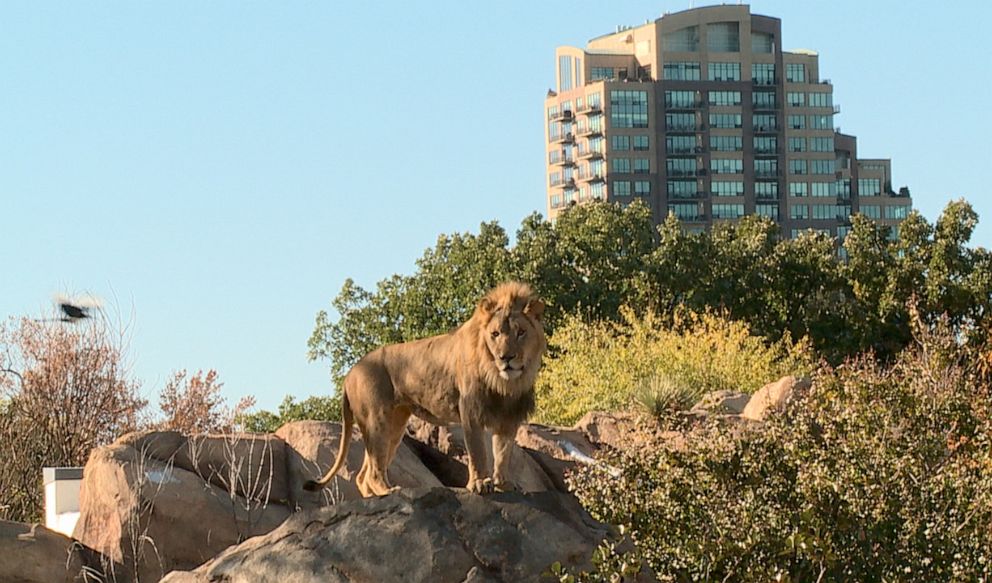
But while the zoo’s visitors are applauding the new cub’s first steps outside his den, the zoo’s keepers are acutely aware of the meticulous planning that went in to bringing this cub to life.
“Genetics are a huge part of what we are looking at when we’re breeding animals or when we receive recommendations to move animals for breeding,” explained Matt Lenyo, the zoo’s assistant curator of predators.
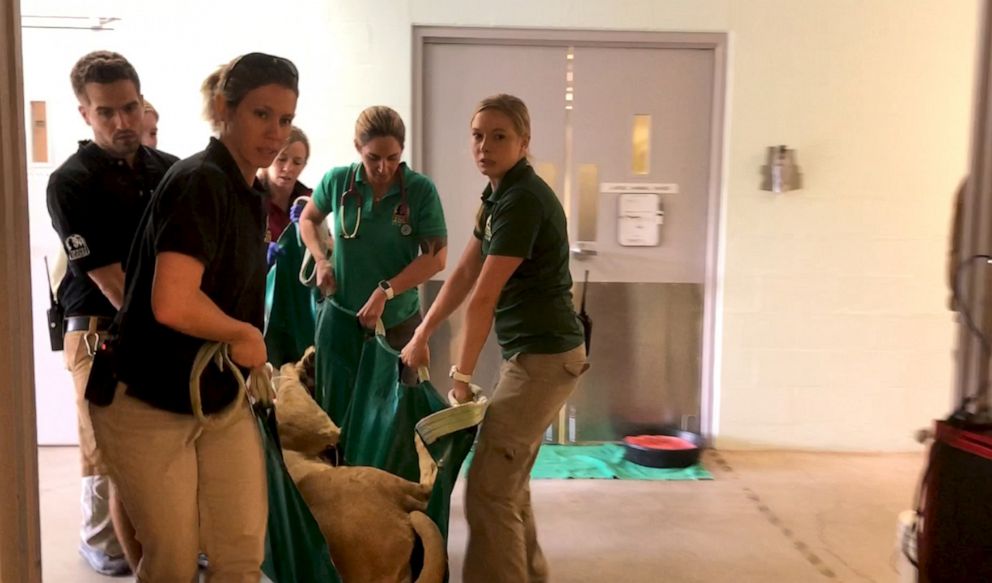
Lenyo and his team work with the Association of Zoos and Aquariums (AZA), a non-profit organization made up of 230 institutions from around the world that focus on conservation, education, science and recreation. In this case, the AZA helps accredited zoos determine which lions should breed with other lions, so that zoos can maintain genetic diversity.
“Most of the breeding that we do is meant to keep the population stable so that future generations have lions,” said Senior Vice President of Animal Sciences Brian Aucone.
There are fewer than 25,000 lions left in Africa, according to National Geographic, whose parent company Disney, also owns ABC News. Loss of prey, loss of habitat and poaching have all contributed to the rapid decline of the species.
The Denver Zoo currently has a bachelor pride of four male brothers, as well as three females, which includes the new cub’s mother, Neliah.
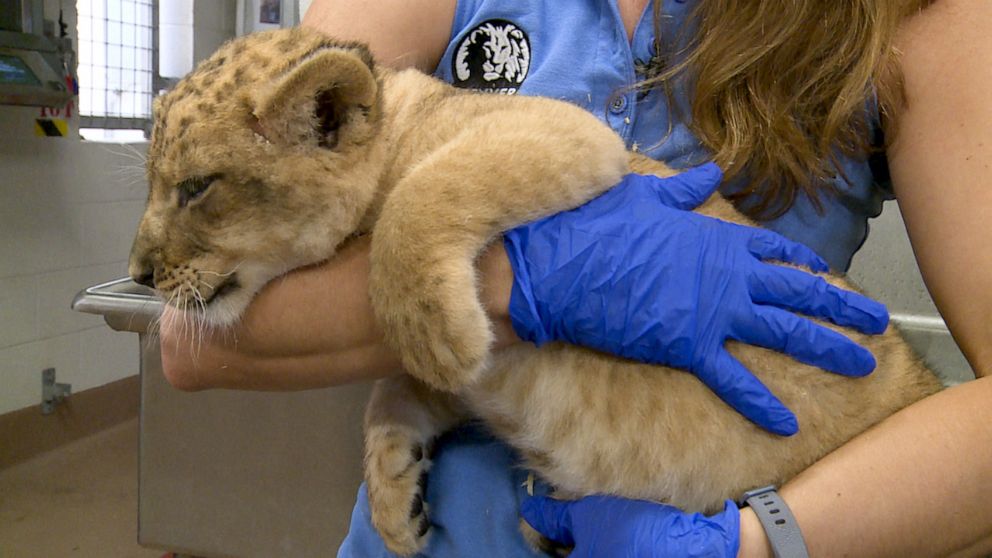
Earlier this year, Neliah and another female lion had birth control implants removed by the zoo’s vet team. While under anesthesia to remove the devices, the veterinary team performed full diagnostic work-ups which included blood work, X-rays, ultrasounds, vaccinations and a full reproductive exam.
“We wanted to do everything we could to make sure [they were] healthy before breeding [them],” said Associate Veterinarian Dr. Betsy Stringer.
Neliah was then introduced to Tobias, a new male lion the zoo had brought in to mate with her.
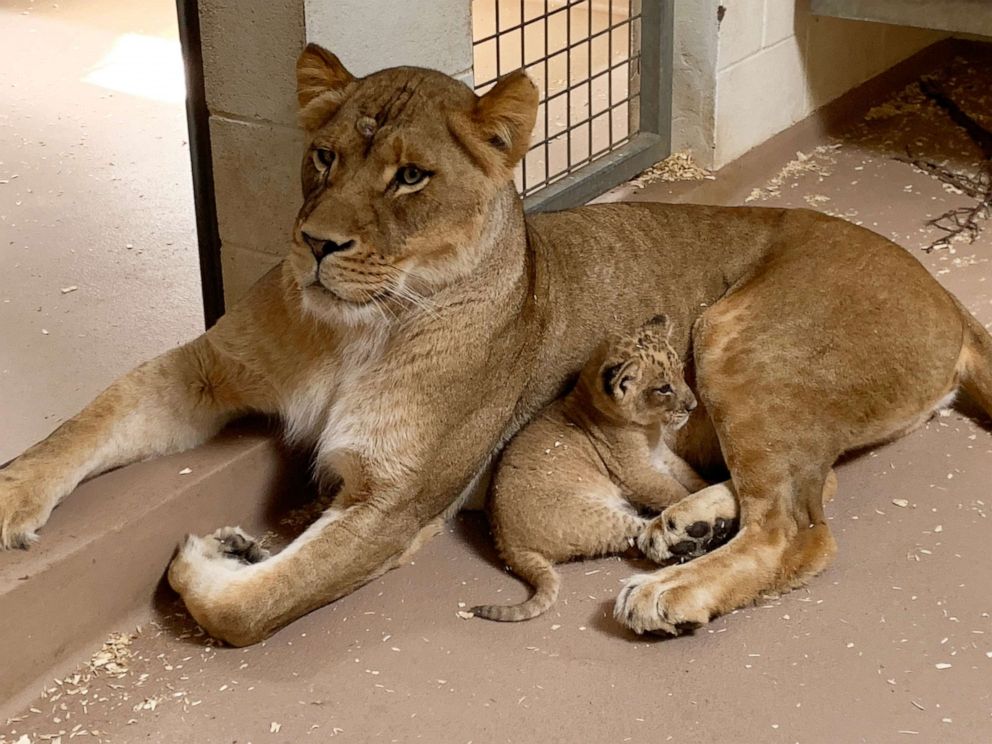
“It’s important as we’re doing introductions that they are off that birth control and they’re excited to see that male,” explained Lenyo.
The gestation period for a lion is around three months, and lions can have litters of one to five cubs. This new cub is the third for Neliah, who had another litter of two cubs three years ago.
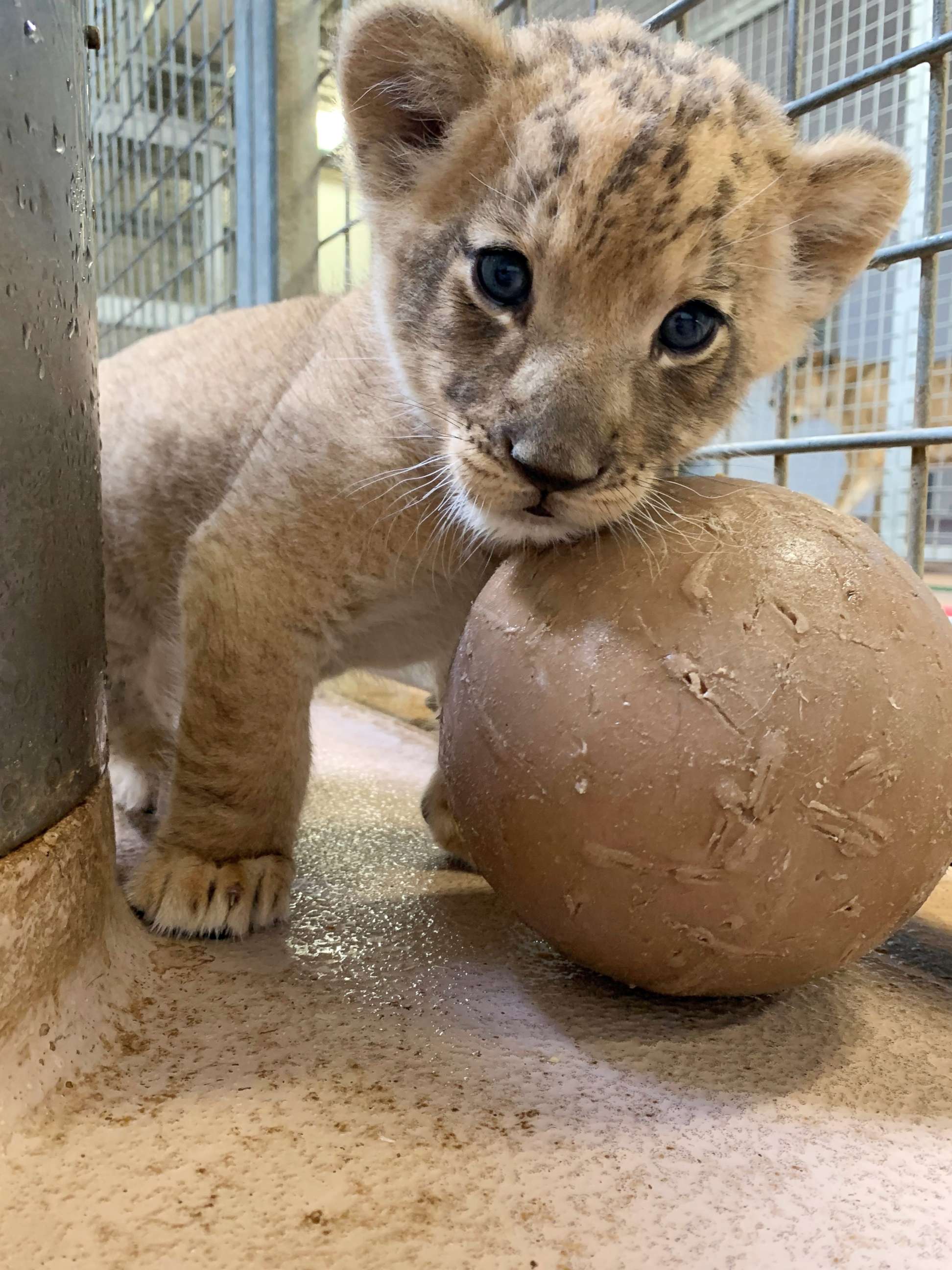
“Neliah is very trusting of her keepers and of her staff, so she will actually allow us to move her away from him and she knows that she’ll see him real soon after that,” said Laura Morrell, a predator zookeeper who works with the new family behind the scenes.
The six-week-old cub has yet to be named, as the zoo is holding a naming contest where visitors can donate money in exchange for voting for their favorite choice.




